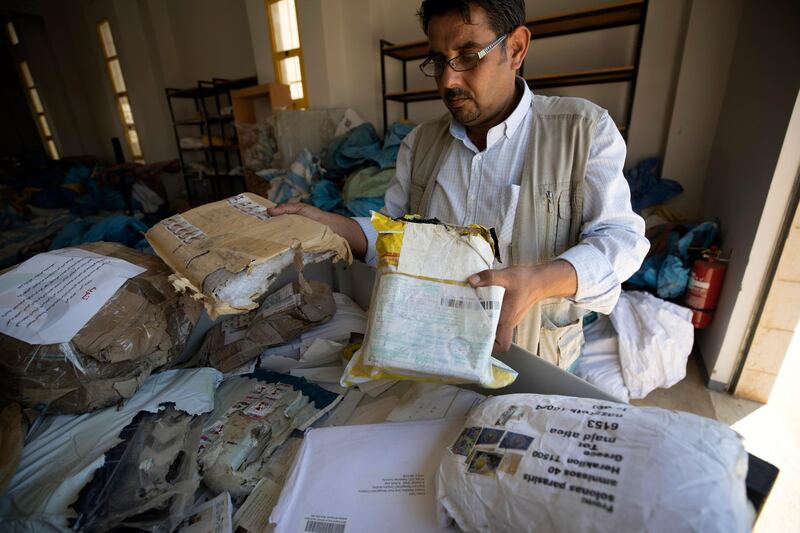What would a letter addressed to you from a loved one eight years ago say? Or a letter about the city you live in today? How much would your life have changed since and would the letter still be relevant? A letter lost in the post for more than a few weeks is often lost indefinitely. Not so in Palestine.
This week it was reported that the Palestinian postal service was working through 10 tonnes of letters and parcels that had been held up in Jordan by Israel – some dating back to 2010. The parcels have finally been released and according to news wires, include everything from personal letters to wheelchairs. One can only imagine what messages they hold when postmen will deliver them to their rightful recipients.
We are becoming increasingly dependent on messages being delivered to us directly and received within seconds, landing in our hands through email or instant messaging over any number of apps. That immediacy has kept us all more connected to loved ones, allowed more productivity and enabled a globalised world. And yet, letters maintain their significance. While there is sentimental value in receiving a handwritten note, there is also historical importance. Letters can often act as a time capsule in an ever-changing world.
A letter written on the state of the Arab world in 2010 would be both vastly different from the realities of today and, in many ways, quite similar in its aspirations.
Ali Abdullah Saleh and Muammar Qaddafi ruled Yemen and Libya respectively and Bashar Al Assad was seen as a benevolent reformer who could turn Syria around. ISIS was an Egyptian mythical goddess and Al Qaeda leader Osama bin Laden was still at large. Iraq was coming out of its worst cycle of sectarian violence and Palestinian prime minister Salam Fayyad was halfway through a two-year state-building programme and getting ready to announce a Palestinian state. Writing about any and all of the above would seem like distant history today.
However, a letter written in 2010 would likely have alluded to the underlying troubles facing the region, from issues of corruption and nepotism to the impact of climate change. And yet it could not have foreseen what the last weeks of that very year would lead to. As protests started in Tunisia and quickly caught on in Egypt and other Arab nations, the rejection of the status quo in many Arab republics would lead to a disruption of the region not witnessed in decades. The histories of each of the countries that witnessed mass demonstrations and upheavals continue to be written and yet for many of them, the underlying causes still plague them.
The lack of dignified future prospects for the young people of countries under occupation, in war or crisis continue to be troubling realities eight years on. Youth unemployment in the region has been the highest in the world for the past 25 years, according to the International Labour Organisation. And it doesn’t appear that the Arab world is about to lose that ranking. Youth unemployment at 25 per cent – and in some countries more than 30 per cent – impedes natural economic growth, social mobility and adds to the insecurity of too many parts of the region. Without having a fair and equitable way forward, the options for underprivileged Arab youth are narrowing between migration, joining militant groups (that are more powerful than they were eight years ago) or leading unproductive lives.
This year marked the 70th anniversary of the Nakba. The decades-long illegal occupation of Palestine continues to destabilise the region and has impacted the lives of every single one of those waiting for a parcel or letter that was unfairly held – part of the daily hardships that Palestinians are forced to endure.
Yet in the past eight years, there have been bright spots. Individuals rooted in strong communities continue to make a difference, whether that is the success story of a company like Souq.com or an individual like Lebanese director Nadine Labaki's Cannes win. Mohammed Salah's brilliant turn at Liverpool Football Club offers another positive role model while the UAE led the way for the whole world by appointing the first Minister of Artificial Intelligence.
Some individuals have an even greater, if less well-known, impact, from aid workers for the Emirates Red Crescent to Syria's White Helmets. And, of course, there is Ahed Tamimi, who at the time of writing a letter in 2010 would have been a primary schoolgirl but was already being shaped by activism and today is the instantly recognisable face of a renewed Palestinian resistance. It is that individual spirit, stemming from a strong community, that through the years and decades ensures there might be more hopeful letters to come.





